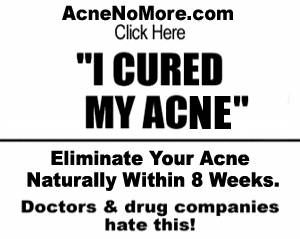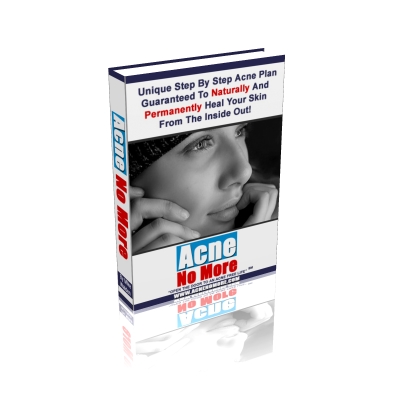Exploring the Dark Side of Accutane and Discovering a Safer Approach
If you're grappling with a severe case of acne that has stubbornly resisted traditional treatments like antibiotics, your dermatologist may suggest turning to the widely acclaimed Accutane or Isotretinoin. Developed by Hoffman-LaRoche, Accutane is an oral powerhouse known for its remarkable ability to significantly reduce acne symptoms after just one 15-20 week course.But despite its unrivaled success in combating even the most severe acne cases, Accutane remains an enigma in the pharmaceutical realm, embroiled in controversy due to its well-documented list of serious and occasionally irreversible side effects.
Visit: Acne and Alternative Acne Treatments
While some of the side effects associated with Isotretinoin usage are mild and manageable (such as dry lips, dry eyes, nosebleeds, excessively dry skin, heightened sun sensitivity, and thinning hair), there exists a lengthy roster of grave side effects that persist even after discontinuing the drug therapy.
These side effects include excruciating back and joint pain, moderate rashes and breathing difficulties stemming from severe allergic reactions, vision impairments, hearing loss, permanent liver damage, chronic migraines and headaches, and skeletal hyperostosis—an abnormal growth of bone along the spinal sides.
Yet, among all the disconcerting Accutane side effects, two stand out as particularly alarming: the drug's potential to cause severe birth defects in pregnant women or those who become pregnant during its use, and the suggested correlation between Accutane intake and mood changes, severe depression, and suicidal thoughts.
Due to the detrimental effects Accutane can have on fetal development, it is
strictly contraindicated during pregnancy, and women must ensure they avoid
becoming pregnant for at least one month after concluding the Accutane
regimen. Additionally, nursing mothers are strongly advised to abstain from
using the drug altogether due to its severe side effects.
While researchers continue to debate whether Isotretinoin directly induces
depression, Roche, the manufacturer of Accutane, openly acknowledges the
drug's potential impact on brain chemicals such as dopamine and serotonin,
which play a vital role in mood regulation.
According to the FDA website, "All patients treated with isotretinoin should
be closely monitored for symptoms of depression or suicidal thoughts,
including but not limited to sadness, irritability, impulsive behavior, anger,
loss of interest, mood disturbances, psychosis, and aggression."
Moreover, statistics reveal that between 1989 and 2003, there were 216
reported suicides among U.S. teens under 18 years old directly linked to drug
usage. Shockingly, 72 of these suicides were attributed to Accutane
(isotretinoin), surpassing even Prozac (fluoxetine) with 55 suicides during
the same period.
Accutane operates by reducing the sebaceous glands' size and output, effectively curbing excessive oil production.
However, this approach comes at a cost—Accutane inflicts damage on your sebum glands and impairs liver function in the process. Once you discontinue the medication, your skin's oil glands may recover their functionality, but your liver will struggle to maintain hormonal equilibrium and prevent the overproduction of sebum.
Isotretinoin also regulates keratinization (the shedding of dead skin cells),
improves fat metabolism, and reduces inflammation. Astonishingly, these
benefits can be easily attained through natural dietary choices,
supplementation, and skincare alternatives, all without the accompanying side effects.
For instance, incorporating foods rich in Vitamin A and Beta Carotene into your diet can help reduce sebaceous gland oil secretion.
Simple homemade papaya peels can effectively replace the exfoliating properties of Isotretinoin, while optimizing sleep, engaging in regular exercise, and consuming vitamins C, E, Zinc, and Colostrum can enhance the body's immune functions, effectively reducing inflammation.
It is vital to recognize that Accutane does not provide a definitive solution
to acne. Not only does it merely address the symptoms of the condition,
disregarding its internal causes, but it can also exacerbate dryness, hasten
the skin's aging process, and inadvertently impair your liver function, among
other side effects. In essence, Accutane, rather than healing, works against
the body's natural balance.
A truly lasting acne solution must encompass a comprehensive approach that
targets the underlying causes and neutralizes the acne environment. By
tackling all contributing factors and embracing a safe, natural, and effective
methodology, you can attain genuine freedom from acne.
Mike Walden, a certified nutritionist, independent medical researcher, natural
health consultant, and author of the bestselling e-book, "Acne No More- Open
The Door To An Acne-Free Life," offers valuable insights into holistic
skincare. Walden has penned numerous articles on holistic health and has been
featured in ezines, print magazines, and countless websites worldwide. For
further information on Mike's Holistic Clear Skin program, please visit:
[AcneNoMore.Com


















0 Comments